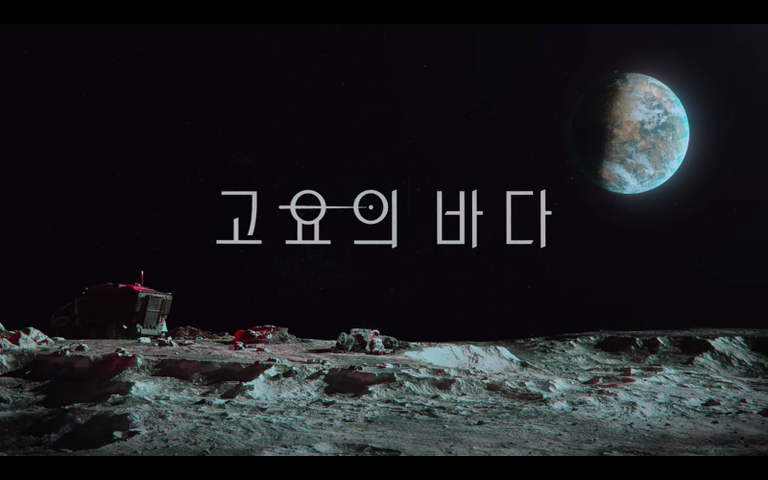
A devastated Earth in the background
Hey, how are you guys doing? I hope everyone is doing great.
Here I am back with another Gong Yoo drama, but this time we're venturing into a completely different world than the bittersweet/fantastic/romantic universe of Goblin – if you haven't read my review of Goblin yet, you can check it out here. Today I bring a review of "The Silent Sea" (in hangul: 고요의 바다), a dystopic sci-fi/thriller series set on a future Earth devastated by resource scarcity, primarily caused by water shortage. Its unique premise revolves around the Moon, as the title suggests, and, in particular, the space station called "Balhae Lunar Research Station", which serves as the main background for the dangerous mission that the characters have to accomplish.
Unlike the traditional 16-episode model of Korean dramas, The Silent Sea consists of just 8 episodes, as it's a Netflix original production – maybe I should call it miniseries instead. Interestingly, the series was inspired by a 2014 short film of the same name, produced by the very same director, Choi Hang-yong, as his graduation project – unfortunately I just found the trailer without subtitles, but surprisingly I managed to understand it pretty well. Korean lessons are working, heh.
The Silent Sea definitely stands out for its challenging setting, as it deals with outer space, something new to the common spaces Korean dramas usually deal with. Despite its ambitious premise, however, the series didn't quite become the worldwide phenomenon that its predecessor, "Squid Game", did. Though it did secure a pretty good spot on Netflix's rankings, the drama failed to truly engage audiences and divided opinions.
Versión en español
Oye, ¿qué tal os va? Espero que todo el mundo esté muy bien.
Aquí estoy de vuelta con otro drama de Gong Yoo, pero esta vez nos aventuramos en un mundo completamente diferente al universo agridulce/fantástico/romántico de Goblin – si aún no has leído mi reseña de Goblin, puedes verla aquí. Hoy traigo una reseña de "The Silent Sea" (en hangul: 고요의 바다), una serie distópica de ciencia ficción/thriller ambientada en una Tierra futura devastada por la escasez de recursos, causada principalmente por la falta de agua. Su premisa única gira en torno a la Luna, como sugiere el título, y, en particular, a la estación espacial llamada "Estación de Pesquisas Lunares de Balhae", que sirve de escenario principal para la peligrosa misión que los personajes tienen que cumplir.
A diferencia del modelo tradicional de 16 episodios de los dramas coreanos, The Silent Sea consta de sólo 8 episodios, ya que es una producción original de Netflix – quizá, en cambio, debería llamarla miniserie. Curiosamente, la serie se inspiró en un cortometraje de 2014 del mismo nombre, producido por el mismo director, Choi Hang-yong, como su proyecto de graduación – lamentablemente sólo encontré el trailer sin subtítulos, pero sorprendentemente conseguí entenderlo muy bien. Las clases de coreano están funcionando, jeje.
The Silent Sea, sin duda, sobresale por su desafiante ambientación, ya que trata del espacio sideral, algo nuevo frente a los lugares comunes que los dramas coreanos normalmente tratan. Sin embargo, a pesar de su ambiciosa premisa, la serie no llegó a convertirse en el fenómeno mundial que fue su predecesora, Squid Game. Aunque consiguió un buen puesto en el ranking de Netflix, el drama no logró cautivar realmente al público y dividió opiniones.
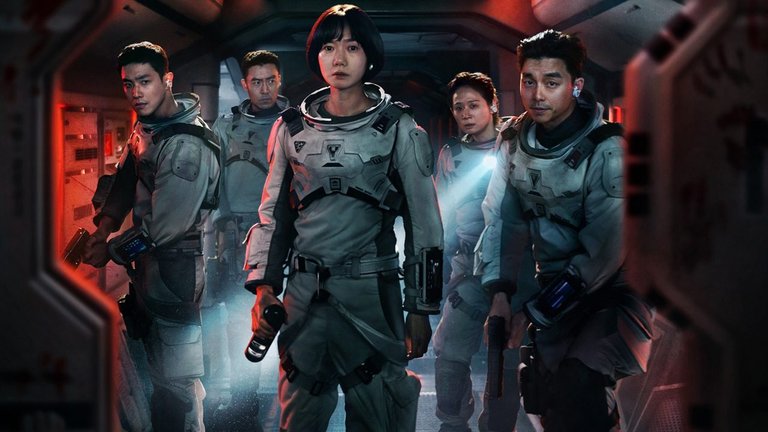
Synopsis
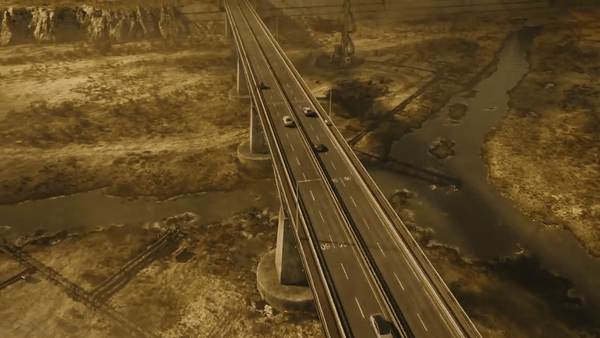 A view of the former Han River
A view of the former Han River
In the future, the Earth has suffered from "The Great Drought" – water, once a freely flowing resource, became the most valuable thing. Rivers had dried up; infant mortality has reached a peak due to drinking contaminated water; it's even illegal to have pets. This crisis changed the way society works, intensifying social segregation. Citizens have different access to water based on their status within a class system – the more powerful and influent people are, the more water they have access to – as a result, protests broke out against the government's unfair water distribution, demanding an end to the regulations.
Amidst the chaos, Director Choi (Gil Hae-yeon), of the Space and Aeronautics Administration (SAA), together with Section Chief Kim (Heo Sung-tae), decided to recruit a team to go on a mission to the now-abandoned Balhae Station – five years ago, it was abruptly shut down due to a mysterious accident, caused by radiation leak, that killed the entire crew. The new team, led by Captain Han Yun-jae (Gong Yoo), was composed of high-level specialists and was given the task to retrieve samples from the station – however, the team was clueless about the nature of these samples, as the authorities involved decided to keep it a secret.
The 24-hour mission was supposed to simply recover the samples and return to Earth, but things took a turn for the worse with the spaceship before they even reached the lunar soil – they ended up crash landing kilometers away from the Station and the spaceship fell into an abyss. With their oxygen reserves running low, they are forced to walk to the Station to continue their mission. Unfortunately, not all of them were able to make it to Balhae.
Versión en español
En el futuro, la Tierra ha sufrido "La Gran Sequía" – el agua, un recurso que antes fluía libremente, se ha convertido en el bien más valioso. Los ríos se han secado; la mortalidad infantil ha alcanzado su punto álgido debido al consumo de agua contaminada; incluso es ilegal tener animales domésticos. Esta crisis cambió el funcionamiento de la sociedad, intensificando la segregación social. Los ciudadanos tienen diferente acceso al agua en función de su estatus dentro de un sistema clasista – cuanto más poderosas e influyentes son las personas, a más agua tienen acceso – como consecuencia, estallaron protestas contra la injusta distribución del agua por parte del gobierno, exigiendo el fin de las regulaciones.
En medio del caos, la Directora Choi (Gil Hae-yeon), de la Administración Espacial y Aeronáutica (SAA), junto con el Jefe de Sección Kim (Heo Sung-tae), deciden reclutar un equipo para ir en misión a la ahora abandonada Estación Balhae – cinco años atrás, ésta fue abruptamente cerrada debido a un misterioso accidente, causado por una fuga de radiación, que mató a toda la tripulación. El nuevo equipo, liderado por el capitán Han Yun-jae (Gong Yoo), era compuesto por especialistas de alto nivel y se le encargó la tarea de recuperar muestras de la Estación – sin embargo, el equipo desconocía la naturaleza de estas muestras, ya que las autoridades implicadas decidieron mantener el secreto.
Se suponía que la misión de 24 horas se limitaría a recuperar las muestras y regresar a la Tierra, pero las cosas se complicaron con la nave espacial antes incluso de llegar al suelo lunar – acabaron aterrizando de emergencia a kilómetros de la Estación y la nave cayó a un abismo. Con sus reservas de oxígeno agotándose, se ven obligados a caminar hasta la Estación para continuar su misión. Lamentablemente, no todos pudieron llegar a Balhae.
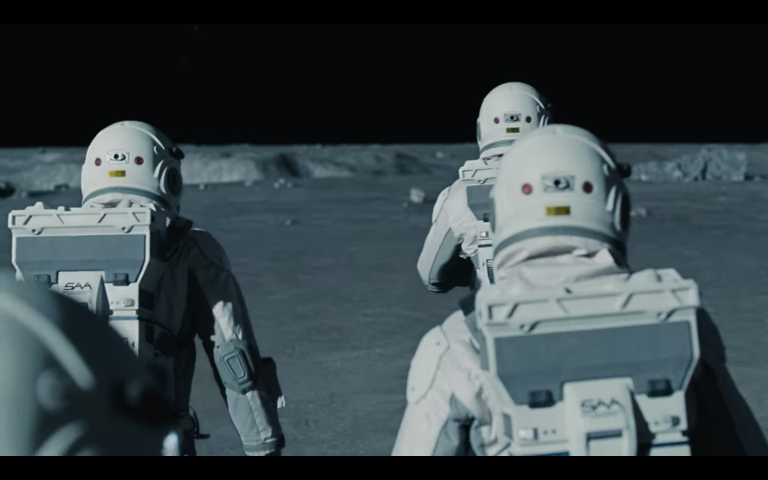
Different interests
As the narrative unfolds, we are gradually introduced to the team members and, among them, the central figure is Song Ji-an (Bae Doo-na), a renowned astrobiologist who is haunted by a past loss – her sister, also a researcher, had died in the Balhae incident years ago. This tragedy was one of the reasons why Ji-an accepted the mission – she wanted to know the truth behind the accident that took her sister's life. More than that, she was determined to decipher the mysterious hidden message her sister had left behind, the key to which lay on the Moon.
On the other hand, the other crew members were promised to receive the highest water card upon their successful return from the mission. This promise was a significant incentive for many, including Captain Han – he joined the team primarily because his sick daughter's life depended on the high card to improve her health condition. As Ji-an already had the A-class card, the different motivations between these two characters often led to conflicts, especially when decisions had to be made. Their bickering became worse after the group arrived at the Station and discovered that things were quite different from what they had been told.
Versión en español
Conforme avanza la narrativa, se nos va presentando a los miembros del equipo y, entre ellos, la figura central es Song Ji-an (Bae Doo-na), una renombrada astrobióloga que se ve atormentada por una pérdida pasada – su hermana, también investigadora, había muerto en el incidente de Balhae años atrás. Esta tragedia fue una de las razones por las que Ji-an aceptó la misión – quería saber la verdad tras el accidente que acabó con la vida de su hermana. Más que eso, estaba decidida a descifrar el misterioso mensaje oculto que su hermana había dejado, cuya clave se encontraba en la Luna.
Por otro lado, a los demás miembros de la tripulación se les prometió recibir la tarjeta de agua máxima al regresar con éxito de la misión. Esta promesa fue un incentivo importante para muchos, entre ellos el capitán Han – se unió al equipo principalmente porque la vida de su hija enferma dependía de que la tarjeta alta mejorara su estado de salud. Como Ji-an ya tenía la tarjeta clase A, las diferentes motivaciones entre estos dos personajes a menudo provocaban conflictos, sobre todo cuando había que tomar decisiones. Sus discusiones se agravaron cuando el grupo llegó a la Estación y descubrió que las cosas eran muy distintas de lo que les habían contado.
Balhae Station
Transitioning from the dusty wasteland of a sepia-toned Earth, the crew members found themselves in the dark, labyrinthical corridors of the Station. As soon as they stepped inside, they were confronted with a series of issues that threatened not only their mission but also their very survival. Their psychological despair began to quietly increase when they discovered a body – the first of many others – showing signs of drowning. Shortly after this, while they were searching for the location to retrieve the samples, they discovered that the radiation levels were oddly normal for a place exposed to radiation leak.
The show has managed to build up a suspenseful atmosphere by layering some old classic thriller tropes – being trapped with the danger, knowing that death is lurking, for example – but with the sci-fi touch. The claustrophobic scenario of Balhae just makes it better, even though it's pretty questionable why such a huge and confusing place was built if resource scarcity is a big issue back on Earth. Regardless, it's easy to get caught up in the creepy vibe as the tension escalates and their lives are at risk. They slowly uncover the truth about the samples as a series of strange events happen: two crew members die under different circumstances and they find out to their horror that they're not alone.
Versión en español
Saliendo del polvoriento desierto de una Tierra teñida de sepia, los tripulantes llegaron a los oscuros y laberínticos pasillos de la Estación. Tan pronto como entraron, se enfrentaron a una serie de problemas que amenazaban no sólo su misión, sino también su propia supervivencia. El desespero psicológico comenzó a aumentar silenciosamente cuando descubrieron un cadáver – el primero de muchos otros – con indicios de ahogamiento. Poco después, mientras buscaban el lugar donde recuperar las muestras, descubrieron que los niveles de radiación estaban extrañamente normales para un lugar expuesto a una fuga de radiación.
La serie ha conseguido crear una atmósfera de suspense combinando algunos de los viejos tropos clásicos de thriller – estar encerrado con el peligro, sabiendo que la muerte acecha, por ejemplo – pero con un toque de ciencia ficción. El escenario claustrofóbico de Balhae lo hace aún mejor, aunque es bastante cuestionable por qué se construyó un lugar tan enorme y confuso si la escasez de recursos es un gran problema en la Tierra. A pesar de todo, es fácil dejarse atrapar por la vibe siniestra a medida que la tensión aumenta y sus vidas corren peligro. Poco a poco van descubriendo la verdad sobre las muestras a medida que se suceden una serie de acontecimientos extraños: dos miembros de la tripulación mueren en diferentes circunstancias y ellos descubren horrorizados que no están solos.
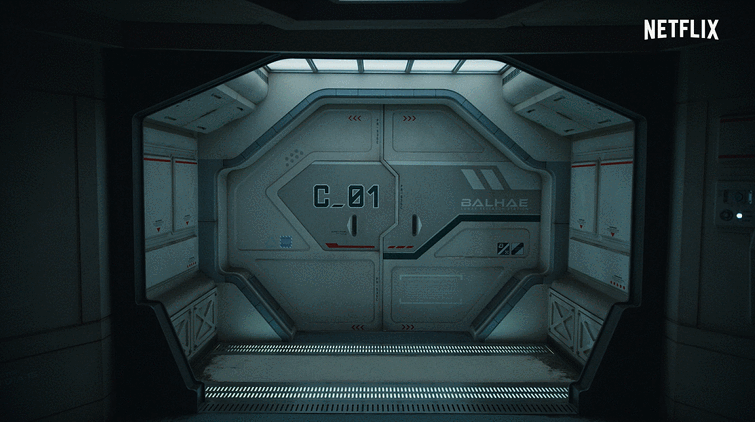
Balhae corridors: great and creepy visual
Artistic license
Despite the gripping narrative mentioned above, the series doesn't escape the common pitfall of many sci-fi shows: the inaccuracies. There's a fine line between science fiction and science fantasy and The Silent Sea often falls short of the former. From issues with portraying Moon gravity to the questionable functionality of the spaceship – with all the futuristic technology, how could they have built such a lame piece of metal junk for outer space travel? Anything goes for the sake of the mood, it seems.
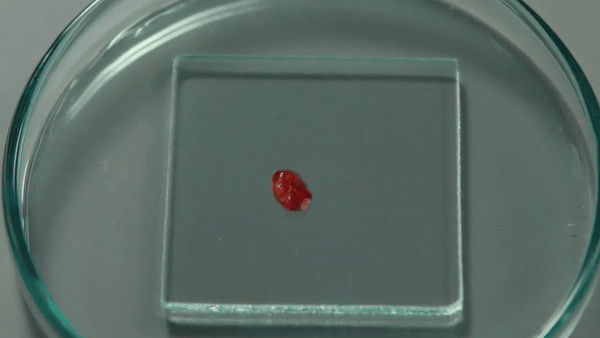 Lunar water in contact with blood
Lunar water in contact with blood
The series also takes considerable artistic license to talk about the samples. Speaking of which, it's revealed that they contained the key to humanity's survival, namely Lunar water – basically the same water from Earth, but with "viral behavior": it reacts when it comes into contact with any living organism, multiplying itself exponentially. This property explains the countless drowned bodies found all over the Station, as well as the death of one of the crew members, who drowned from the inside out. Even violating all the laws of physics/chemistry as we know them, this didn't directly affect the magic of the show. All the made-up chemical properties of the Lunar water, explained by Dr. Hong, actually gave the story some credibility within the show's universe – you just don't have to think too much about science: suspend disbelief and play along with the show.
Versión en español
A pesar de la cautivadora narrativa ya mencionada, la serie no escapa al habitual error de muchos shows de ciencia-ficción: las imprecisiones. Hay una fina línea que separa la ciencia ficción de la fantasía científica y The Silent Sea a menudo se aleja de la primera. Desde los problemas para representar la gravedad lunar hasta la dudosa funcionalidad de la nave espacial – con toda la tecnología futurista, ¿cómo han podido construir un trasto de metal tan cutre para viajar por el espacio? Parece que todo vale por el bien de la atmósfera.
La serie también se toma considerables licencias artísticas para hablar de las muestras. Y a propósito, se revela que contenían la clave de la supervivencia de la humanidad, o sea, agua lunar – básicamente la misma agua de la Tierra, pero con "comportamiento viral": reacciona al entrar en contacto con cualquier organismo vivo, multiplicándose exponencialmente. Esta propiedad explica los innumerables cuerpos ahogados encontrados por toda la Estación, así como la muerte de uno de los miembros de la tripulación, que se ahogó de dentro afuera. Aunque se violaran todas las leyes de la física/química tal y como las conocemos, esto no afectó directamente a la magia del show. Todas las propiedades químicas inventadas del agua lunar, explicadas por la Dra. Hong, dieron a la historia cierta credibilidad dentro del universo de la serie – simplemente no hay que pensar demasiado en la ciencia: hay que suspender la incredulidad y dejarse llevar por la serie.
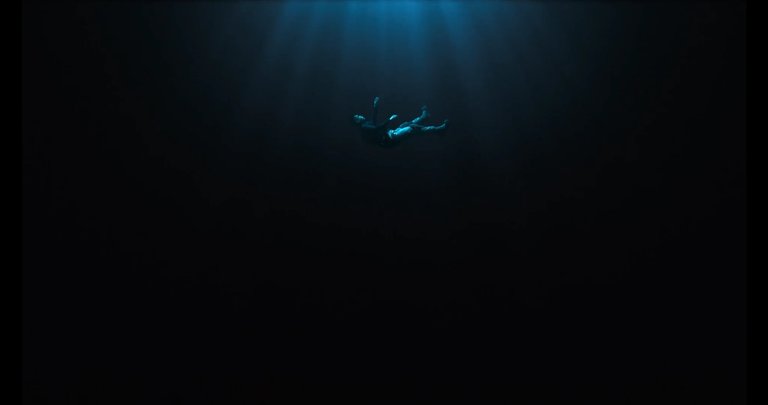
These scenes of death by Lunar water are strangely beautiful – just these, not those of the infinite vomit
Multilayered story
As if it wasn't enough, the crew stumbled upon another unexpected incident – the presence of someone else lurking through the corridors, determined to protect the samples from the crew. I won't talk much about who the intruder is – or whether the crew are the real intruders – to avoid major spoilers, but this hidden figure will prove to be their hope in dealing with the lethal Lunar water. Unfortunately, the show failed to manage the pacing needed to delve deeper into this intruder's story arc, which plays a crucial role in the story as a whole.
By the way, The Silent Sea is clearly not a character-driven show, instead, its highlight lies in the dystopic world, specifically focusing on the water shortage, its consequences and the desperate efforts to solve the problem – or rather, the desperate Korean government's race to be the first to find a solution. Though this world seems far from reality at first, the show incorporated realistic and relatable issues from the present day, such as climate change and social inequality. However, there wasn't enough space to fully develop these topics as well – a bad shot, in my opinion. Actually, the series tries to deal with multiple subplots simultaneously in so few episodes – from government corruption, to the RX group and their undercover mercenaries on the mission, to the dark, illegal human experiments conducted for the "good of mankind" – and all of these topics were just thrown into the plot without further explanation or a decent cliffhanger that suggests there will be another season.
Versión en español
Y por si fuera poco, la tripulación se topó con otro incidente inesperado – la presencia de otra persona merodeando por los pasillos, decidida a proteger las muestras de la tripulación. No hablaré mucho de quién es el intruso – o si son los tripulantes los verdaderos intrusos – para evitar spoilers mayores, pero esta figura oculta resultará ser la esperanza que les queda para enfrentarse a la letal agua lunar. Lamentablemente, la serie no ha sabido manejar el ritmo necesario para profundizar en el arco narrativo de este intruso, que desempeña un papel crucial en el conjunto de la historia.
A propósito, está claro que The Silent Sea no es una serie centrada en los personajes, sino que su principal atractivo reside en el mundo distópico, centrado específicamente en la escasez de agua, sus consecuencias y los desesperados esfuerzos por resolver el problema – o mejor, la desesperada carrera del gobierno coreano por ser el primero en encontrar una solución. Aunque al principio este mundo parece alejado de la realidad, la serie incorpora temas realistas y cercanos de la actualidad, como el cambio climático y la desigualdad social. Sin embargo, no hubo espacio suficiente para desarrollar plenamente estos temas también – una mala jugada, en mi opinión. En realidad, la serie intenta tratar múltiples subtramas simultáneamente en tan pocos episodios – desde la corrupción gubernamental, pasando por el grupo RX y sus mercenarios encubiertos en la misión, hasta los sombríos e ilegales experimentos humanos realizados por el "bien de la humanidad" – y todos estos temas fueron simplemente lanzados a la trama sin más explicación o un suspenso final decente que sugiriera que habrá otra temporada.
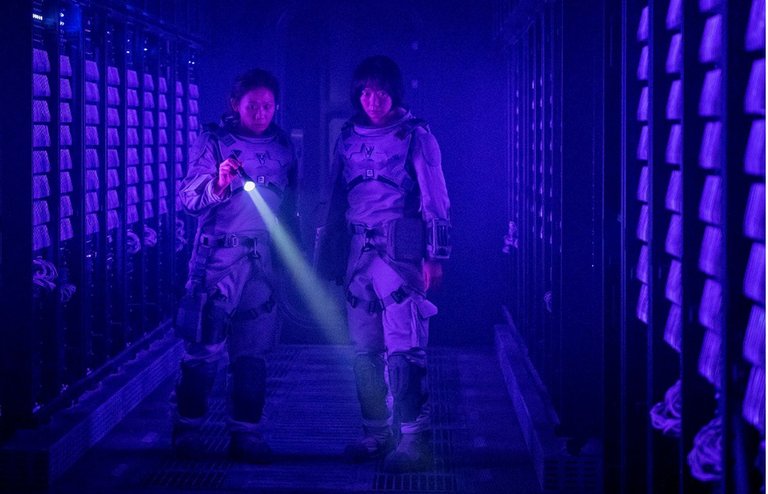
The Station had a lot of "secret rooms", which weren't than they had imagined
Villain?
Back to talking about the characters, it's no surprise that the show suffered from a lack of character depth, but still, the dichotomy between Dr. Song Ji-an and Captain Han Yun-jae was quite interesting, as I already mentioned – while she embodied an anti-heroin, going against the grain and disobeying Captain Han's orders, he remained steadfast and loyal to his superiors, sticking to the mission until the end. Despite their atypical roles, both characters are essentially flat: they do not undergo significant changes throughout the story, which made them less engaging as protagonists – I wonder why they chose to cast the biggest Korean stars to portray such shallow characters. However, the most interesting aspect at all was the lack of a traditional villain; instead, the harsh environment itself is portrayed as the main antagonist – and as the narrative progresses, minor villains appear, such as Director Choi, who sent the team on a blind mission, or the spies who tried to sabotage the already challenging mission.
Versión en español
Volviendo a hablar de los personajes, no es ninguna sorpresa que la serie careció de profundidad en los personajes, pero aun así, la dicotomía entre la doctora Song Ji-an y el capitán Han Yun-jae fue bastante interesante, como ya he mencionado – mientras ella personificaba una antiheroína, yendo a contracorriente y desobedeciendo las órdenes del capitán Han, él se mantuvo firme y leal a sus superiores, aferrándose a la misión hasta el final. A pesar de sus papeles atípicos, ambos personajes son esencialmente planos: no experimentan cambios significativos a lo largo de la historia, lo que les hace menos cautivadores como protagonistas – me pregunto por qué eligieron a las mayores estrellas coreanas para interpretar a personajes tan superficiales. Sin embargo, el aspecto más interesante en absoluto fue la ausencia de un villano tradicional; en cambio, el propio ambiente hostil se presenta como el principal antagonista – y a medida que avanza la narrativa, aparecen villanos secundarios, como la Directora Choi, que envió el equipo a una misión a ciegas, o los espías que intentaron sabotear la ya de por sí difícil misión.
Final thoughts
The Silent Sea had all the ingredients to make the perfect recipe: a good premise; the dystopic world as the background, which I personally love; criticism towards relevant topics – although done in a pretty superficial way – the best actors, top-notch CGI; psychological terror and lots of suspense; the Lunar water concept itself and all the show vibe in general. However, the ending not just left a lot of important questions unanswered and big plot holes but also lacked coherence again when dealing with the already confused "logics" regarding the Lunar water. There were two things that specifically bothered me in the last episode: what happened to Ji-an and what happened to the Station, both related to the water as well – things would have been different if, at least, some of the fantastic logics had been applied to the events. In this sense, it was quite disappointing to see this happening with a show with a lot of potential.
Versión en español
The Silent Sea tuvo todos los ingredientes para hacer la receta perfecta: una buena premisa; el mundo distópico como trasfondo, que a mí personalmente me encanta; críticas hacia temas relevantes – aunque hechas de una manera bastante superficial – los mejores actores, CGI de primera; terror psicológico y mucho suspense; el propio concepto del agua lunar y toda la onda del show en general. Sin embargo, el final no sólo dejó muchas preguntas importantes sin respuesta y grandes huecos en la trama, sino que también volvió a carecer de coherencia al tratar las ya confusas "lógicas" relativas al agua lunar. Hubo dos cosas que me molestaron específicamente en el último episodio: lo que le pasó a Ji-an y lo que le pasó a la Estación, ambas relacionadas con el agua también – las cosas habrían sido diferentes si, al menos, se hubiera aplicado alguna de las lógicas fantásticas a los acontecimientos. En este sentido, fue bastante decepcionante ver que esto ocurrió con un espectáculo con mucho potencial.
My rating
Premise – 
Execution – 
Coherence – 
Pace – 
Acting – 
Production – 
Ending – 
Have you watched The Silent Sea? Let me know your thoughts in the comments.
Thanks and see ya! 🌑🚀


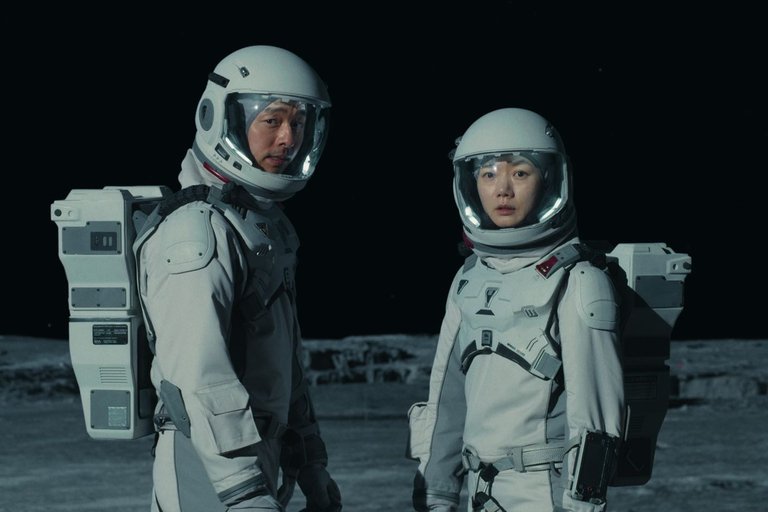

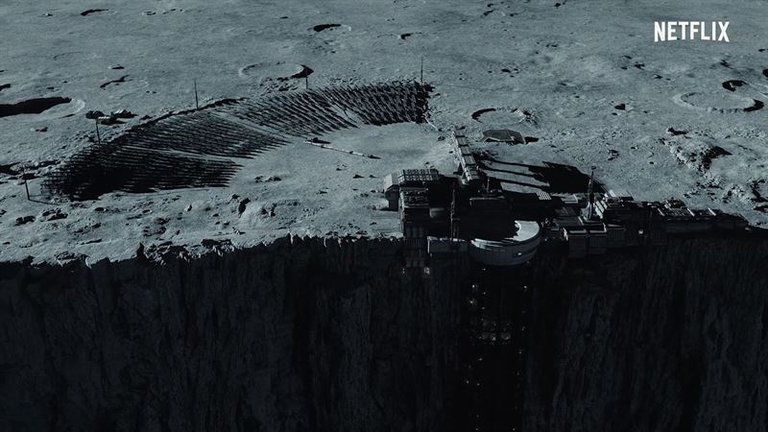
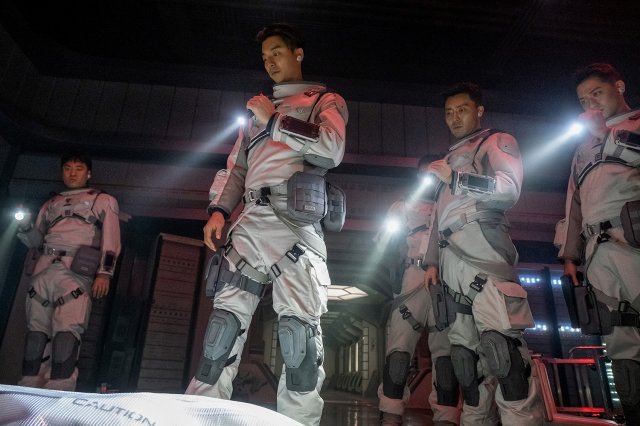
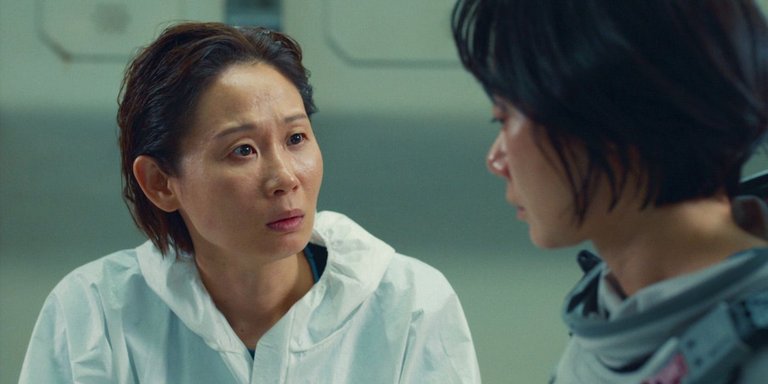

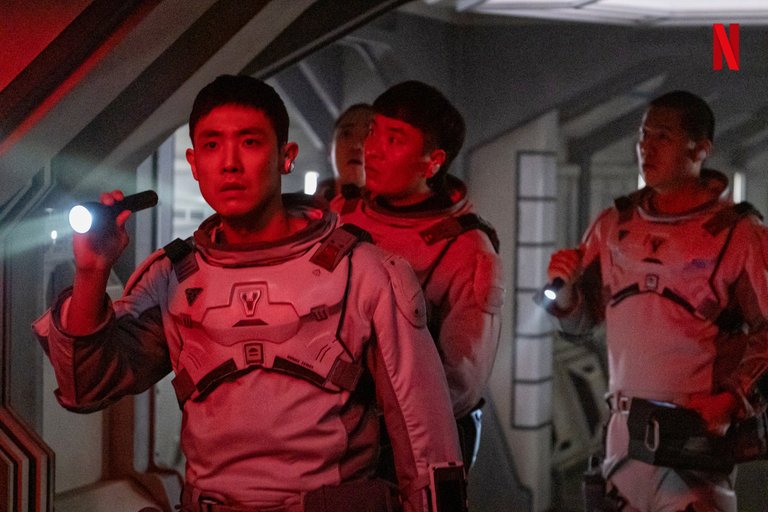

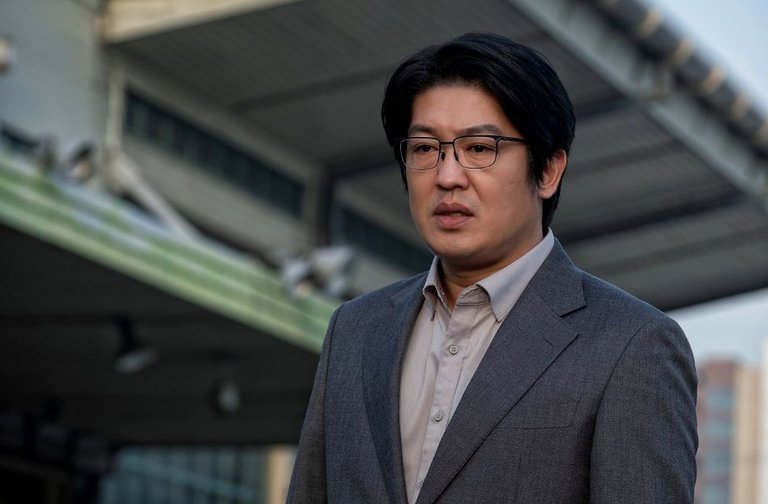

Obrigado por promover a comunidade Hive-BR em suas postagens.
Vamos seguir fortalecendo a Hive
A mini series? That's great. I have been watching more Korean mini series nowadays. There are some actors who are familiar and just seeing them is enough to go ahead with the download button coupled with the fact that you gave us the necessary detail without giving out much. Well done.